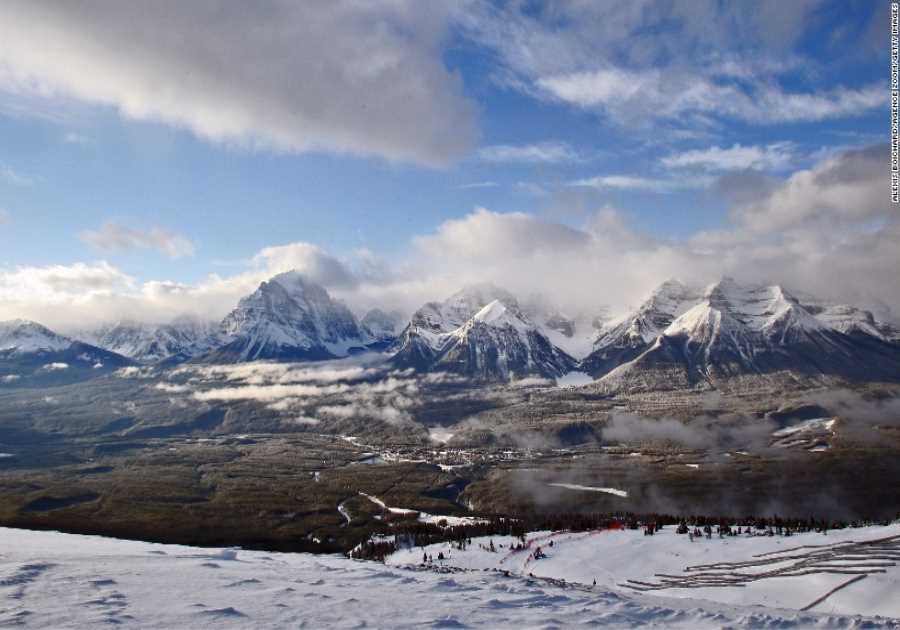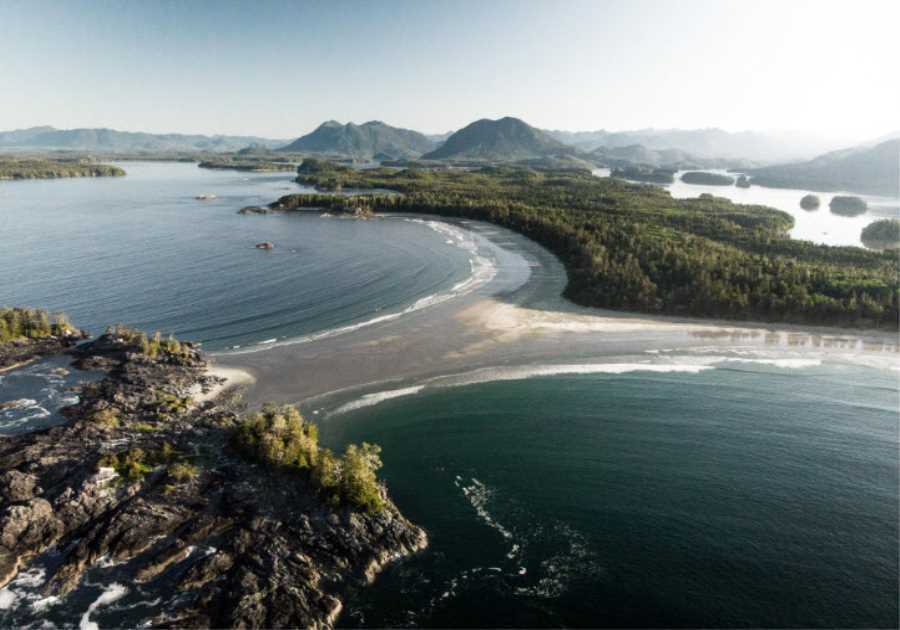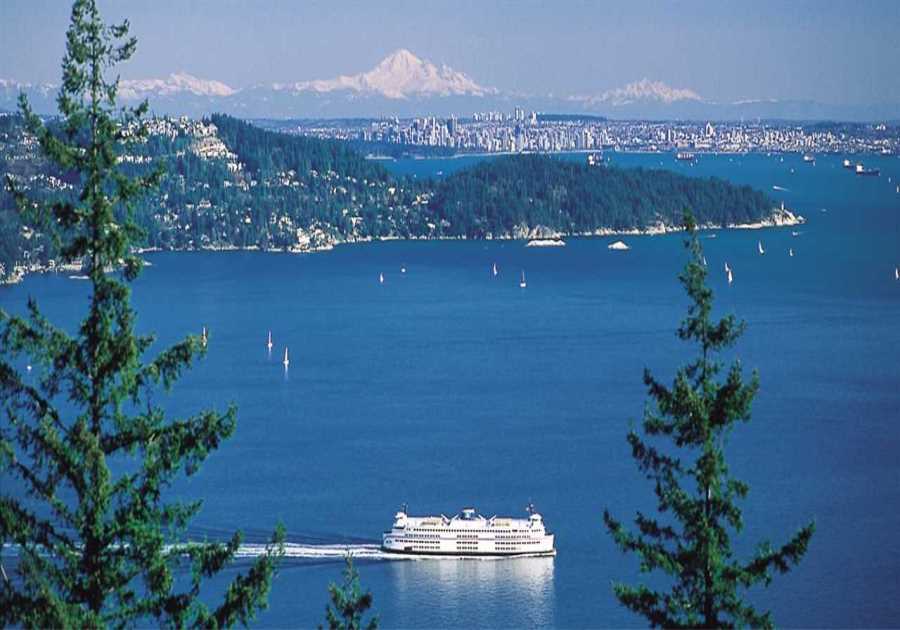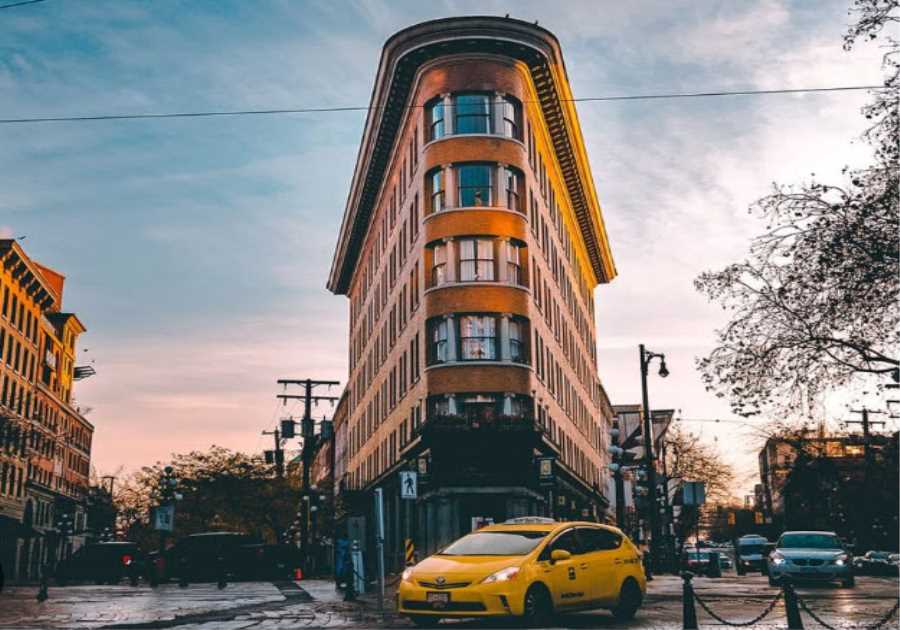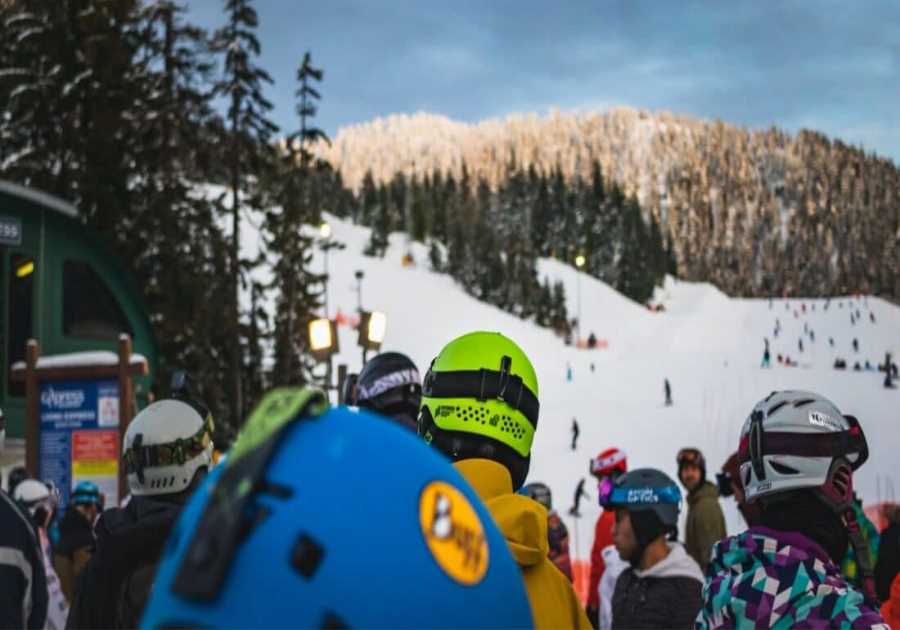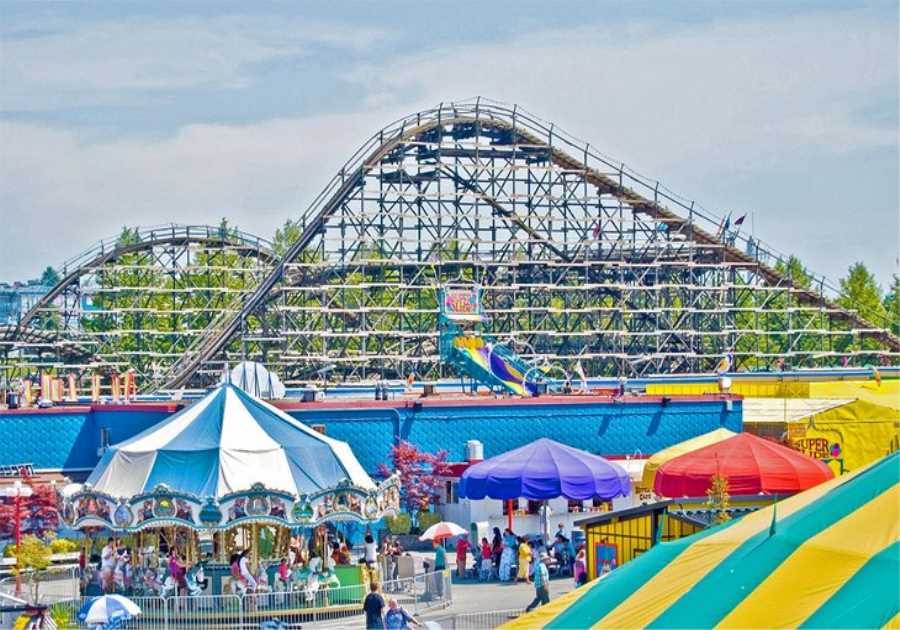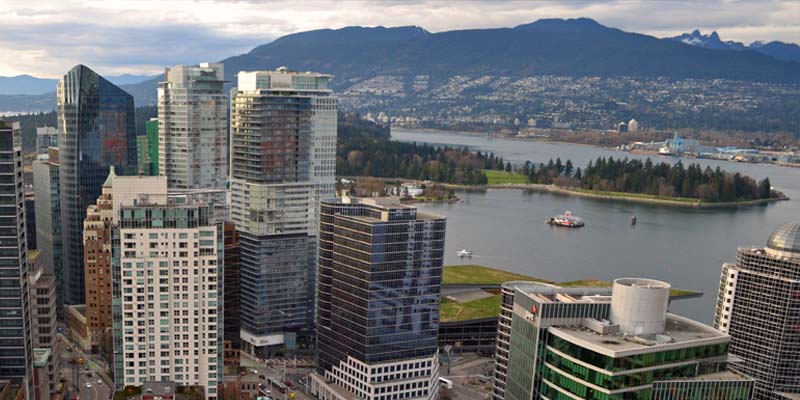
How expensive can living in Vancouver get?
Vancouver is a unique city that many people love to live in, and despite the high costs, it continues to be a popular destination for new arrivals. That said, understanding the costs of living in Vancouver is an integral part of the process if you’re planning to move here.
The cost of living in Vancouver is higher than the average cost of living in Canada, largely due to the high price of housing. According to real estate data, the average home price in Vancouver is over $1 million — one of the highest in all of Canada.
The cost of transportation can also be quite expensive compared to other Canadian cities. For example, public transit fares are higher than in most other parts of Canada and driving costs can quickly add up due to toll bridges, parking fees, and more congested streets that require extra fuel for longer trips.
Another significant expense associated with life in Vancouver is food. Groceries tend to be slightly more expensive than you’d find in other Canadian cities, but restaurants and take-out foods can often be surprisingly pricey for newcomers who aren’t used to these prices.
Regarding entertainment and recreation activities such as going out for dinner or a movie, prices tend to be similar across Canada, so you won’t necessarily see any big differences.
However, it’s important to note that salaries tend to be higher on average in Vancouver compared with other places in Canada, which can help offset some of these high costs. Of course, that depends on your job and whether or not you qualify for bonuses or special compensation packages, which are always lovely options if offered.
Despite these higher expenses, most people here talk about how great life is and why they wouldn’t want to leave! They can often give great tips on where you can save money in areas like groceries and finding affordable housing options, as well as free things like parks, beaches and outdoor activities that anyone can enjoy.
The actual cost of living in Vancouver and how to make ends meet.
Living in Vancouver can be a costly and stressful experience. As costs for housing, food, transportation, and other necessities continually rise, many people in the city struggle to make ends meet. But there is hope.
Today I’m going to share insider tips on saving money and getting the most out of living in Vancouver without sacrificing the quality of life you want.
Firstly, it pays to work smarter, not harder, by taking advantage of government benefits like transit passes or rental assistance programs if you’re struggling to pay your rent or mortgage. These are designed to help reduce some financial stress so you can focus on things that matter, like finding a stable job or advancing your career.
Secondly, it’s essential to plan; budgeting for rent and transportation helps cut down on unexpected fees that may arise when expenses hit when least expected. Getting organized will also help remove some of the anxiety associated with navigating resources and programs available in your area because they can sometimes be overwhelming.
Thirdly, try looking beyond regular meals into less expensive options like bulk produce buying clubs or community-supported agriculture (CSA), where locally produced food items are heavily discounted compared to shopping at supermarkets or delis. Bonus: by buying locally, they grow strong communities while supporting family farms.
Fourthly, look into free recreational resources such as public parks, library cards and community centers, which offer free activities throughout the year; everything from art galleries, walking tours, and cycling paths—all great ways to spend time without spending money!
Finally, using online tools such as Mint Bills and Finances, a mobile app, users can manage their budget closely and remain on top of their finances without spending too much time doing difficult math equations manually calculating totals every month; plus, its secure interface makes bill payments more straightforward than ever before!
Cost of car insurance
Car insurance costs vary widely across Canada, depending on several factors. First, the type of vehicle you drive plays a large role in the cost of insurance. For instance, a Hyundai Venue will cost $1,618 less per year to insure in Vancouver than a high-performance Audi R8. Therefore, if you want to save money on your Vancouver auto insurance, it is best to purchase a lower-performance vehicle. Another factor that can influence the cost of insurance is your driving history. Minor traffic violations can cost you $360 or more annually, while major convictions can add up to $1,266 to your annual premium.
Age also plays a big role in the cost of car insurance in Vancouver. As a rule of thumb, young drivers pay more than older drivers. A 30-year-old driver will pay nearly $640 more for car insurance in Vancouver if he or she has an accident, while a 60-year-old driver will pay $418 more. However, it's worth keeping in mind that young drivers can lower their rates by increasing their deductibles. For example, raising your deductible from $100 to $200 per month can help you save $236 per year on your Vancouver car insurance.
Cost of rent
The cost of rent in various neighbourhoods can vary significantly; rents in some of the most desirable areas can be even higher.
For example, the average rent for a one-bedroom apartment in downtown Vancouver can be upwards of $2,500 per month.
A two-bedroom apartment can cost between $2750 and $4250 per month. This includes utilities like gas and electricity. In addition, renters insurance is required and usually runs around $20 per month.
Unfortunately, this high cost of rent combined with expensive housing prices has made it increasingly difficult for many people to afford to live in the city.
This is especially true for those starting out or those with a lower income.
The astronomical prices of both rental and housing costs in Vancouver have put immense pressure on these vulnerable population segments.
As a result, many have been left feeling overwhelmed and unable to make ends meet financially due to these ever-increasing costs.
Rent prices in Vancouver are increasing every year. The consumer price index for Vancouver has increased by 3.9% over the past year. This means that Vancouver residents spend a significant percentage of their income on housing.
Despite the high cost of living, Vancouver remains a desirable place to live.
Blessed with an enthralling natural landscape, a pleasant climate and an abundance of captivating culture and entertainment, Vancouver truly lives up to its iconic status as the number one city for livability.
Avenues for luxurious leisure, indie exploring or uptempo excitement are always available, from picturesque bike rides along the Seawall to gleaming nightlife in historic Gastown. Commuters benefit from some of the most efficient public transport in Canada.
Apart from convenience, however, folks remain drawn to Vancouver for its ever-present sense of community and security; public parks are constantly busy with people enjoying their day off, and downtown businesses proudly showcase locally made products and services.
The iconic skyline is a reminder of Vancouver’s flourishing economy, generating many employment opportunities across tech and media industries in an ever-growing city.
Many cultural organizations within the city strive to educate future generations on the bright promise that awaits them should they choose Vancouver as their home; livability ratings remain remarkably high despite higher taxes and other inflated costs associated with living in such an underrated metropolis.
However, it isn’t all glitz and glamour—albeit tightly packed between mountain ranges, forests and coastlines—Vancouverites pay largely for this serenity–financially. Affordable housing has become a problem even for middle-class earners; families fight gentrification battles as purchase prices soar beyond expectations.
Still yet, only recently has it been mentioned that uncompromising zeal for preservation may keep some people away due to inevitably higher costs —but not enough evidence exists today to declare unequivocally if it affects desirability—the rest is primarily rumours while locals never sound unhappy discussing their enviable quality of life.
Frequently Asked Questions
Vancouver is so expensive.
Vancouver's high price of living is caused by several factors. Many families and individuals are wealthy in Vancouver, and this is evident in the real-estate market. Vancouver is also a popular destination for tourists, with rising prices in accommodation and other amenities.
Vancouver's remote location makes it more expensive to live there. Goods and services must be shipped from abroad, increasing the price.
Vancouver's high cost-of-living is due to its many attractive features such as its mild climate, beautiful scenery, and other factors. Vancouver remains attractive despite its high living costs.
What are Vancouver’s best-kept secret?
While Vancouver is well known for its natural beauty and vibrant city life, there are also plenty of hidden gems to be discovered. Here are just some:
Capilano Suspensionbridge: A 450-foot-long suspension bridge that spans through a canyon of Capilano Park. The bridge provides breathtaking views over the surrounding forest.
Vancouver Aquarium is a world-class facility, located in Stanley Park. It houses over 70,000 marine mammals.
Gastown - A historic neighbourhood with cobblestone streets and Victorian-style buildings, Gastown is now one of Vancouver's trendiest areas with many bars, restaurants and shops.
Granville Island is a lively market that can be found on a small island near False Creek. It offers a wide range of food, entertainment and art.
Vancouver Art Gallery: One of Canada's biggest art museums. This gallery has over 10,000 artworks from around the globe.
Science World - A hands-on science museum perfect for kids and adults.
Vancouver is surrounded in mountains and forests. This makes it a hiking paradise. There are trails of all difficulty levels to explore, many with stunning views of the city and beyond.
Vancouver's beaches are a treasure trove of natural beauty with over 19 kms of coastline. Jericho Beach, English Bay Beach & Kitsilano Beach are some of the most popular spots.
These are just some of the many secrets Vancouver has to offer. You can explore Vancouver and make your own discoveries!
What month is the best time to travel to Vancouver, Canada?
As everyone is different, there is no one right answer. The best time to visit Vancouver, however, is usually between May and September. The weather in these months is typically mild and sunny, making them ideal for outdoor activities. Several festivals and events take place during this period, so there is always something to do.
October through April is the best time to visit if you are looking for a quieter season. You'll also find the best rates on flights and accommodation during this time.
Vancouver can be enjoyed at any season of the year.
If you love skiing or snowboarding, winter is the best season to visit. The ski season is usually between November and April.
Vancouver is also an ideal place to camp or hike. There are many beautiful trails to explore, and the scenery is simply stunning.
When it comes to choosing when to visit Vancouver, it all depends on your needs. It's possible to visit Vancouver at any time.
Where should you go first?
Gastown is the perfect place to start to learn about Vancouver. There are many unique shops, cafes, restaurants, and bars in this area.
If you're looking for something different, check out the Chinatown district. Here you will find authentic Asian restaurants, eateries and art galleries as well as museums, museums and historic sites.
Imagine you want to live the excitement of a large city. Head downtown. This is where you will find the best nightlife and entertainment options. You could spend days just exploring this part of town.
You might prefer to be surrounded by nature, so take a stroll through Stanley Park. This is one of the largest urban parks in the world. It has miles upon miles of hiking trails and beaches.
Is Vancouver expensive?
The cost of travelling to Vancouver will vary depending on your mode of transportation, accommodation choices, and planned activities. If you want to save money on your trip, consider taking public transit instead of renting a car and staying in hostels or Airbnbs instead of hotels. Vancouver is a very expensive place, so plan to spend more there than you would elsewhere in Canada or North America. There are many options to save money and take advantage of all Vancouver has to offer. You don't need to spend a lot of money on your vacation if you plan well.
What is the coolest neighbourhood in Vancouver?
Vancouver has many cool neighborhoods. Vancouver only has one coolest area. Kitsilano has some of the most stunning beaches in Vancouver. Kitsilano is home to the most popular restaurants in town. Kitsilano is home to some of the most luxurious homes in town.
What is Vancouver, Canada's most famous landmark?
Vancouver is known for its fresh seafood. This includes salmon, oysters and mussels as well as scallops and halibut.
Vancouver is also home of many microbreweries. Visitors can enjoy local beer at Steamworks Brewery or Storm Brewing Company. Granville Island Brewing Company. Big Rock Brewery.
In addition, plenty of craft cocktail bars offer creative drinks, such as Bluebird Cafe, Slainte Irish Pub, Barboza, Dockside Social Club, Tonic Bar & Grill, and the Bistro L'Abattoir.
A wide variety of international cuisines are available in the city.
There are many cafes and bakeries that sell delicious pastries, breads, cakes, and cookies.
For shopping enthusiasts, Vancouver is home to some of the largest malls in North America, including Pacific Centre Mall (Pacific Centre), Metropolis at Metrotown (Metropolis), and Westgate Square Shopping Centre (Westgate).
Other popular attractions include Science World, Museum of Anthropology, Museum of Contemporary Art, Vancouver Maritime Museum, Vancouver Aquarium, VanDusen Botanical Garden, Children's Playland Park, Stanley Park, Grouse Mountain, Capilano Suspension Bridge, Lynn Canyon Park, Jericho Beach, English Bay, Kitsilano Beach, Seabus Water Bus Service and the Skytrain.
Statistics
- Sixty-four percent of residents voted in favour of hosting the games.[72] After the Olympic joy had faded, Campbell's popularity started to fall. (en.wikipedia.org)
- 12.5 percent of the province's area (114,000 km2 or 44,000 sq mi) is considered protected under one of the 14 different designations that includes over 800 distinct areas. (en.wikipedia.org)
- Johnson led the coalition to the highest percentage of the popular vote in British Columbia history (61 percent) in the 1949 election. (en.wikipedia.org)
- The CCF's popular vote was high enough in the 1945 election that they were likely to have won three-way contests and could have formed government; however, the coalition prevented that by uniting the anti-socialist vote. (en.wikipedia.org)
- Trends of urbanization mean the Greater Vancouver area now includes 51 percent of the province's population, followed by Greater Victoria with 8 percent. (en.wikipedia.org)
External Links
vancouver.ca
cbc.ca
- The history of the Skwxwu7mesh is revealed by road signs on the Sea to Sky Highway
- Temperature record broken in Lower Mainland -- again | CBC News
www2.gov.bc.ca
- Population Estimates – Province of British Columbia
- Ministry of Agriculture and Food-Province of British Columbia
botanistrestaurant.com
How To
What are some of the best hiking trails in Vancouver?
Vancouver is a great place to hike and explore nature. You can take in the beauty of Vancouver's beaches, parks, and mountains. Vancouver boasts so many trails, you can hike almost anywhere within the city. These are our top picks for Vancouver hikes.
- Capilano Suspension Bridge Park North Shore (North Shore). This park can be found at North Vancouver’s Capilano River Valley. It features stunning views of the ocean, the Capilano River, and surrounding forested hillsides. From here, you can see Mount Baker.
- Grouse Mountain (West Side): Located in West Vancouver, this mountain is home to several popular hiking trails, including the Pacific Spirit Trail, which takes hikers along the coastline of British Columbia and connects to the Trans Canada Trail.
- Kitsilano Beach South Side - This famous beach is great for relaxing after a hard day of work. You can take a stroll on the beach, play volleyball or rent a bike. Or you can just relax and watch the sunset.
- Lynn Canyon Regional Park (East Side). This park is an ideal destination for those who want to enjoy the natural beauty of Vancouver. Enjoy a stroll in the woods and possibly spot a bear.
- Lonsdale Quay Park: Central Area. If you're looking for something a little different, Lonsdale Quay park might be the right place. This park has unique sculptures and gardens that are worth a visit.
- Mt Seymour Rehabilitation Centre (North East). The trail starts just outside the recreation centre, goes up the side and ends at the summit. Amazing views of the city can be seen along the way.
- Oak Bay Marina: This path runs alongside the marina by water and offers spectacular views of Stanley Park or English Bay.
- Seawall Park (Downtown),: This trail can be found on the seawall surrounding False Creek. It is a great place to spend a sunny afternoon. There will be the Canadian Museum of Flight, Science World and Olympic Village.
- Strathcona Park, North West: This park is famous for its spectacular view of downtown and Burrard Inlet. It's an excellent place to take photographs and is completely free.
- Van Dusen Botanical Garden Southeast: This garden offers a peaceful escape from the bustle of the city.
.png)
